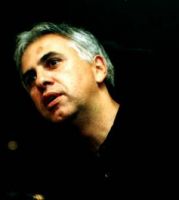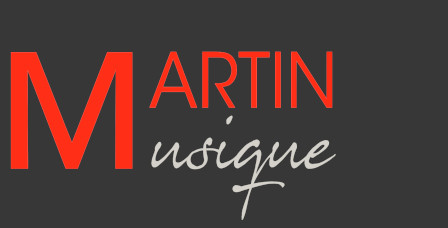Bruno COULAIS

Bruno Coulais was a French composer, born in Paris January 13, 1954, best known for his film. Boasting a cosmopolitan spirit, it is as a father from Vendée laced with Irish and Iraqi Jewish mother born in Paris. Having first classically trained (violin, piano) and destined him to compose contemporary concert music, he is gradually moving towards the cinema but will not by following a series of meetings, one of the most striking with been influenced by director François Reichenbach, who entrusted him in 1977, music documentary Mexico Magico. He composed his first music for a feature film in 1986, with La Femme's secret Sébastien Grall. Until the late 1990s, he remained low-profile, works for television. Often found his name on the TV films by Gérard Marx and Laurent Heynemann and cinema, he was noticed for his collaboration on three occasions, with Christine Pascal (The little prince said, 1992), or on a film like The son of the shark Agnes Merlet (1993). In 1994, he met Josée Dayan, who allows him to compose a theme for the TV series The Hope River (France 2, Fall 1995) and with whom he will work again later, on other blockbusters (The Count of Monte Cristo, Balzac) as more intimate on television (The Nuiteux). But the big turning point came in 1996 when he met Claude Nuridsany Pérennou and Mary, both of the documentary Microcosmos. This single film, which leaves much room for music, gets a big success and the foregrounds of the most wanted composers of French cinema. The Cesar for best film and it is awarded in 1997, and a Victoire de la musique. This reputation was confirmed with the soundtracks to Himalaya (1999, 2nd Caesar) and The Crimson Rivers (2000), and since the name of Bruno Coulais seems to run consistently on new "blockbuster" French (Belphegor, Vidocq ), while still associated, paradoxically, to movies much more confidential. However, after Winged Migration, in 2001, Coulais announced his desire to reduce his contributions to cinema and to pursue other projects (creation of a children's opera, with Akhenaten projects or with the Corsican group A Filetta with which he worked for his music for Don Juan in 1998 by Jacques Weber). It is found however in 2002 on a cartoon, The Boy Who Wanted to be a bear, and in 2004 on Secret Agents of Schoendoerffer and especially on the big hit of the year, The Chorus by Christophe Barratier, whose music gets a success as great as that of the film, which earned Coulais his third César. Since then, Coulais's collaborations in film apparently restricted to the directors with whom he already has some history, especially Jacques Perrin, Schoendoerffer, James Huth (Brice, 2005). In 2005, he directs the Cathedral of St. Denis's "Stabat Mater" with the participation of Robert Wyatt. The musical style of Bruno Coulais may be very different from one soundtrack to another, however, some constants seem to emerge: a taste for opera and for the human voice (particularly children), to search for sounds original instruments for non-European and the mixture of musical cultures, and finally, a certain tendency to surround the notion priviligier (influenced by the light of the film) than narrative. Overall, unlike his colleagues Alexandre Desplat, Philip Rombi, his music should almost nothing to any "French tradition" of film music (Maurice Jaubert of Philippe Sarde through Georges Delerue), or even for musicians of other nationalities film (despite its interest displayed for a composer like Howard Shore), as its musical references are mainly elsewhere (world music, contemporary music. ). Furthermore, regardless of his notoriety and commercial success of some discs (especially Himalayas, Winged Migration, and especially Les Choristes) it is significant that Coulais is not always the most popular composer, or estimated in specialists lovers of film music, probably more attached to the symphonic tradition and Hollywood narrative. It nevertheless remains a personality quite original and influential of French cinema, but also the musical world in general, since the late 90. Bruno Coulais is married with two sons, Hugo and Louis. The former has recently founded the rock band Ulysses (first album released early 2006). Google machine translation: Bruno COULAIS's original bio |
 |
| ||
| Bruno COULAIS Arr : Jean Jacques CHARLES Publisher : Martin Musique Genre : Orchestra Group : Wind band Style & options : Film and television music Grade : Or:1+ |
(COUL04170) : Consult us | ||
 |
| ||
| Bruno COULAIS Arr : Jean Jacques CHARLES Publisher : Martin Musique Genre : Orchestra Group : Wind band Style & options : Film and television music Grade : Or:1+ |
(COUL04169) : Consult us | ||
 |
| ||
| Bruno COULAIS Arr : Jean Jacques CHARLES Publisher : Martin Musique Genre : Orchestra Group : Wind band Style & options : Film and television music Grade : Or:1+ |
(COUL04168) : Consult us | ||
 |
| ||
| Bruno COULAIS Arr : Jean Jacques CHARLES Publisher : Martin Musique Genre : Orchestra Group : Wind band Style & options : Film and television music Grade : Or:1+ |
(COUL04167) : Consult us | ||
 |
| ||
| Bruno COULAIS Arr : Jean Jacques CHARLES Publisher : Martin Musique Genre : Orchestra Group : Wind band Style & options : Music with choirs, voice Grade : Or:2 |
(COUL04166) : Consult us | ||
